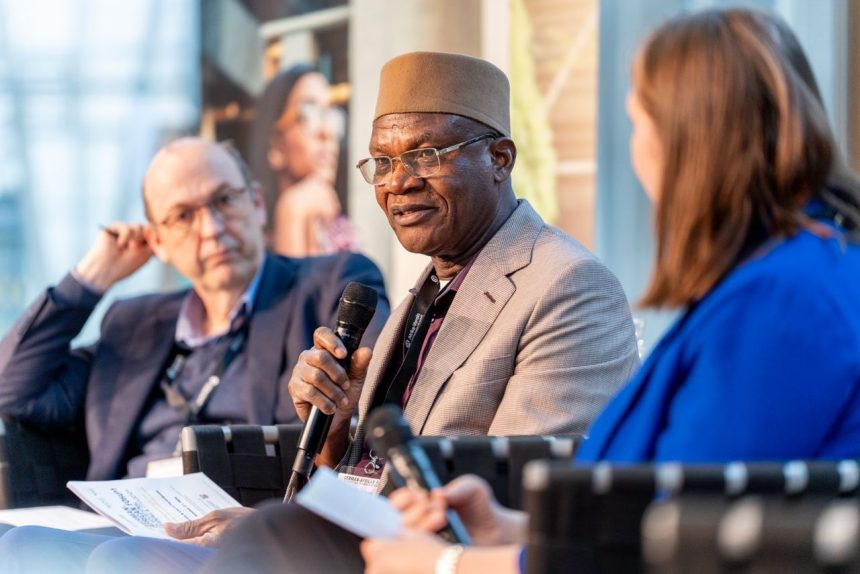The Minister for Education, Prof. Tahir Mamman, has emphasized the critical role that public-private partnerships played in advancing skills development for Africa’s youth.
Mamman while addressing industry leaders and government officials at the 3rd German-African Forum on Vocational Training and Education in Berlin, said it was a crucial step towards achieving the Sustainable Development Goals (SDGs)
by 2030.
He highlighted Nigeria’s DOTS policy as a major step toward educational reform in the country.
The DOTS policy is a comprehensive framework aimed at transforming Nigeria’s educational system.
It prioritizes data-driven decision-making, enabling the government to design and implement effective, evidence-based educational policies.
Additionally, it focuses on addressing the educational needs of out-of-school children, ensuring they receive the necessary training for future opportunities.
The policy also places significant emphasis on teachers’ development and support, with the goal of empowering educators to act as agents of change in their communities.
Lastly, DOTS promotes the acquisition of skills across all levels of education, with a particular focus on enhancing employability and fostering entrepreneurship.
Mamman further explained that this policy would not only improve education quality but also create opportunities for skills development and teacher empowerment.
He emphasized that data-informed policies are key to transforming education systems and addressing the challenges faced by the sector.
Moreover, the DOTS initiative supports Technical and Vocational Education and Training (TVET), which is vital in providing practical skills for the workforce.
The Minister also highlighted the potential for collaboration between African nations and German industries, particularly in areas such as education technology innovation and bridging the skills gap in critical industries.
He underscored the importance of collaborative investments and knowledge sharing as a means to unlock Africa’s vast human capital and drive sustainable economic growth.
“The future of Africa’s economic growth lies in unlocking its human capital through education,” Mamman stated.
He emphasized that partnerships between governments, industries, and educational institutions are key to accelerating skills acquisition and driving development across the continent.
The forum also served as a platform to reaffirm Nigeria’s commitment to establishing strategic partnerships with international stakeholders.
Through these partnerships, Nigeria aims to create a pathway for sustainable development, focusing on building a skilled workforce that can drive innovation and growth in the region.











